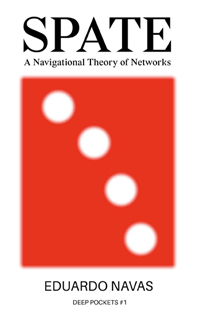The global digital commons and other unlikely tales, by David M Berry

Image source: icommons.org/
Text source: opendemocracy.net/
22 – 6 – 2006
The commons movement may be groundbreaking and innovative but as it hurtles towards a global model, it risks the privatisation of culture and a disregard for national boundaries, says David M Berry.
Correction:
This article originally characterised iCommons as “a private limited company based in London”. Although this is a true statement under UK Company Law, it did not fairly reflect iCommons’ charitable status and was therefore misleading. On 7 July 2006, the text was amended to characterise iCommons as “a registered UK charity”.
We thank Jimmy Wales, board member of iCommons, for pointing out the error.”
It is with some trepidation that I regard the forthcoming iCommons summit, to be held in Rio de Janeiro on 23-25 June. One of the summit goals, as expressed by its title, is how to move “towards a global digital commons”. Putting aside the breathless prescriptive language that assumes that a global commons would be an unmitigated good, it is interesting to ask what is it that the iCommons is advocating when it calls for a Global Digital Commons?
There can be no doubt that supporters like James Boyle and Lawrence Lessig have correctly diagnosed a problem with the global corporate race to turn the cultural sphere into new forms of property. Boyle’s idea of an “environmentalism” – which I understand as a form of political activism – for the public domain is a possible solution.
However, unlike Greenpeace for example, iCommons (a registered UK charity) seeks to build these new global structures of cultural sharing without wider debate or criticism. Instead it is busy writing national licences and patching them together into a global system that raises more questions than answers.
And what is their justification? Well, it seems to be that the world needs more cultural “raw materials” set free from the constraints of copyright. But here the important questions are not asked: who will benefit from a global commons? Why is Creative Commons trying to build a global digital commons in the first place? What kind of notion of public are they implying by a commons? And given the nature and affiliations of Creative Commons, should we be suspicious?
The good ship commons
iCommons is an offshoot of the Creative Commons (www.creativecommons.org), an American non-profit organisation that aims to solve all our cultural remixing and reuse needs through “simple-to-use” legal devices called Creative Commons Licences. Creative Commons laudably wishes to encourage the sharing and openness in wider culture that have typified movements like the Free/Libre and OpenSource movements, who freely share computer code, expertise and knowledge across the internet.
It aims to get lawyers out of the way of creativity, according to one of the founders, Lawrence Lessig, and in typically contradictory lawyerly fashion, it does this by making everyone use lawyer-created copyright licences to mark their work. And, to use that marked work, you are constrained in having to also license your own work under a Creative Commons license.
Not content with this strange state of affairs, the Creative Commons is also aggressive in its attempt to expand the use of its licences worldwide, with often overly defensive and uncritical supporters and some questionable partnerships with PR corporations and big media. This unfortunately, and perhaps unfairly, sometimes makes Creative Commons look less like a civil society organisation and more like an expanding cult. But it is the appetite for global expansion that marks the Creative Commons (and through it the iCommons) as a particularly odd kind of non-profit.
The iCommons itself is an organisation that has been founded to develop national Creative Commons licenses modelled on their American counterparts, which will eventually work easily with each other (“interoperate” in the jargon). In effect, building a new layer of cultural exchange on top of the private property system of copyright, but at a level which transcends any particular copyright regime, and offers a greater differentiation of usage by consumers of that culture. This includes the ability to remix it, modify, redistribute and in some cases even sell it (share alike licences), but also more restrictively to constrain it, prevent modification and even limit how it might be used (non-derivative, sampling, and non-commercial licences).
iCommons itself seems to have corporate blood bubbling through its veins, with its faintly environmental flower symbol, and the somewhat bland slogan “share the past, create the future”. On their website they claim to want to build a “united global commons community” through a number of free culture projects, but trawling through the mailing lists and looking at their board it is soon clear that this is a project heavily biased toward the Creative Commons way of doing things.
Creative Commons might be fine for those that wish to share particular cultural artefacts in a particular setting (perhaps for musicians sharing samples and so forth), but what concerns me is the question of whether the wider marking of culture through copyright or these licenses is symptomatic of a wider inability to respect or understand a notion of a public good?
What’s the agenda?
It is the lack of engagement with this issue that makes Creative Commons appear disconnected, and in which it would much rather pretend that it is somehow apolitical and above the fray of debate. This is coupled with a curiously naïve technocratic cosmopolitan perspective that sees the erasure of national difference in cultural policy and protection as an unquestionably positive project (roughly translated as “national copyright” = bad / “global commons” = good).
The Creative Commons project is a curiously inverted attempt to use a private property regime to reproduce a “common” (understood, for me at least, as a non-owned culturally shared space of culture, knowledge or ideas). Put another way, Creative Commons seems to be attempting to create a shared public resource through a clever bit of tweaking of copyright, without the messy and difficult problems of educating citizens to the important of a public domain (or “common” good).
It rather looks like a technocratic method of bypassing any of the needs of a “demos” (as a political community or people) that might through debate create such a structure, to the point of a de facto institutionalisation of a cultural sphere by a cultural illuminati (here represented by CC).
In one way this raises questions about to what extent national states’ sovereign control of their intellectual property law can be transcended in this way. It raises important questions about how this project might be perceived as a threat to the national interest of any single state. Will governments be happy to watch their cultural products seep away into an American founded “common” or will they legislate to make Creative Commons type projects illegal or regulated?
There may also be concern from a western perspective about the leaking out of protective national spheres of certain technologies and knowledges (issues raised by encryption software or GNU /Linux giving a technological boon to software development skills in China, for example).
Lastly there is the important question of the way in which these licences might be used to actually perform national protectionist measures from outside competition, for example flooding the market with “free” Creative Commons versions of a product or using copyright licensing to set a boundary on its commercialisation.
However a deeper question is the extent to which there is a lingering neoliberal agenda underlying the assumption that a “global common” would be that much better than nationally protected commons. Creative Commons is unusual in its apolitical stance, standing for a commons, but giving no reasons why it would be a good thing.
Is it to reduce poverty? Is it to unite humankind in a spirit of enlightenment and mutual respect? Or is it to create a cultural sphere of spare parts and cultural objects to be “free” in theory but in fact channelled through the services of corporations that can mine the cultural detritus of a previous age to create the products and services of a post-fordist future?
We are never told. But the question remains over who are these “others” who will build new things. There is certainly no sense of citizenship, community or people (except for an inevitable online digerati slant to the discussions – not exactly a universal notion).
The cost of free culture
Commentators and politicians tell us that we live in a world of globalisation, of smooth frictionless trading systems and global culture. Ours is a world where the protective and warm embrace of welfare systems, decent employment legislation and human rights are being swept away by the cruel hard logic of free markets, anti-terror legislation, and the needs of an information-based economy.
The world today (we are informed) is an interconnected marketplace of ideas that is global and hyper-efficient. Corporations drone on endlessly about knowledge workers, the learning corporation, the protection of ideas and dangers of piracy, peer to peer and teenage downloaders. Politicians laud the “creative” worker-droids in what used to be called the cultural industries, but are now the newly respectable “creative industries”. As we move into a new century, a bright future of universal creativity, lifelong learning and cultural abundance awaits us all.
But, of course, this is a distorted image; it presents a world-view rather than empirical reality. It is a perspective that is coloured by the usual political imperatives of special interests. In this case a particularly Anglo-American capitalism that is connected to a political programme that is attempting to realign national economies from an industrial “fordist” model to a shiny new information-based economic system.
Key to its success is the implementation of a number of important measures to enable intellectual labour to be turned into international trade, property rights and commodities. But most important is a world-wide intellectual property regime that allows the creation of markets which are enforceable across national boundaries – what you might call a “global digital marketplace”.
So, what does all this mean in practice? Well, one doesn’t need to be entirely suspicious of the motives of a “global digital commons” to note that some of the largest corporate supporters are the new Web 2.0 companies like Google, MySpace and Flickr (not to mention Microsoft). To fulfil the desires of their IPO shareholders and the financial markets requires high returns through fast growth and commercialisation.
The Web 2.0 business models are predominantly based on the idea of lots of people to placing their self-made content on shiny new Web 2.0 websites and licensing it entirely free of charge back to the corporations. Free labour and out of copyright material is by definition as cheap as it gets and brings with it a sometimes paying but always-advertised-to consumer of the “value-added” services the corporations supply with this “free stuff”.
This is, lets face it, the commercial exploitation of free culture and is as far away from the ideal of democratic sharing of knowledge and information as you can get.
So what’s in it for us? Along the way, Creative Commons has managed to lose any of the values that might have provided a lodestone for the global digital commons project (a criticism that cannot be made of the Free Software movement, for example). There is little discussion about the wider ramifications of the move from a nationally bound public domain to a supranational arena and there is little debate about the dangers as well as the benefits.
The project of free culture deserves support – it has a commitment to open knowledge, the transferability of information goods between rich and poor countries and offers an alternative way of producing and organising culture. It also raises important questions about the wider commodification of our cultural sphere.
iCommons and Creative Commons are flawed because they lack a concept of political economy. Instead of creating the flowering alternative cultural space envisioned by many, they run the risk of creating the conditions for a new wave of privatisation of culture. Indeed, one suspects that Creative Commons licences would have had to be invented by our Web 2.0 friends, if they didn’t already exist. Except, perhaps that they might have named them Creative Market licences.
Lascia un commento
You must be logged in to post a comment.








